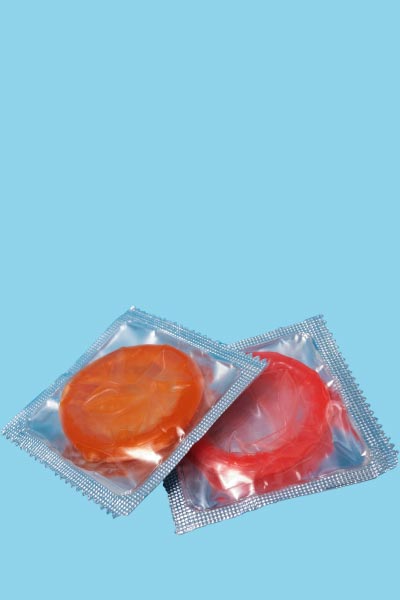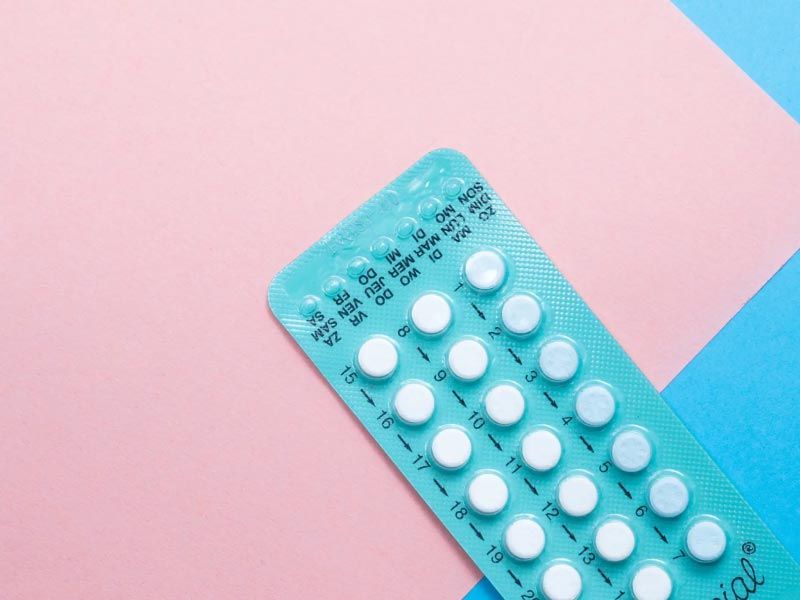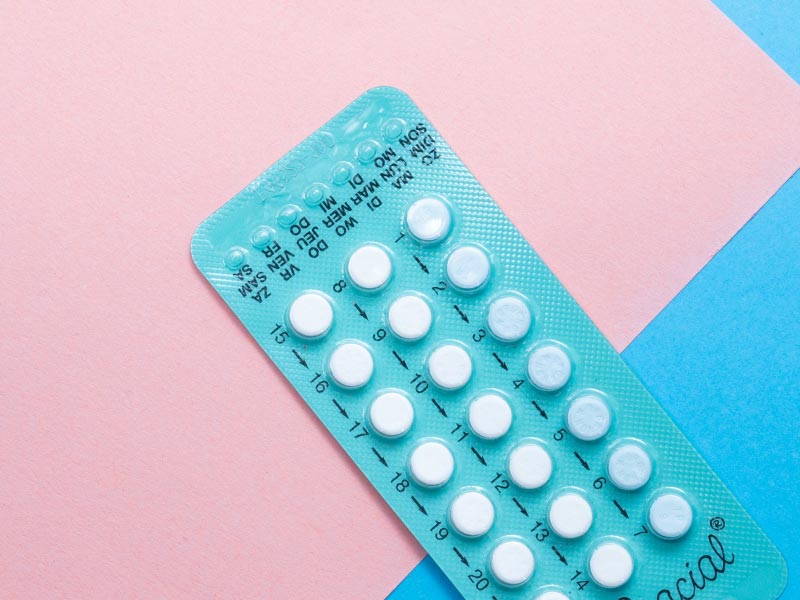
Written by Kathleen Morrison
Medically Reviewed by Andrea Sleeth WHNP-BC, MSCP
Have you ever found yourself in the mood, all ready to get down, when a panicked thought flashes across your mind: "does that thin piece of latex really keep me safe?" It's a common fear, especially among those inexperienced with sex. When used properly, however, condoms aren't just great at preventing pregnancy, they're the best defense we have at preventing the spread of STI's.
How Effective Are Condoms?
Let me start by reassuring you that, when used correctly, condoms are highly effective as a form of birth control. While they aren't perfect, if used correctly every time, they're 98% effective at preventing pregnancy. And really, it's those "inexperienced" condom-wearers of the world are responsible for the majority of mishaps that result from condom failure. Due to misuse, about 15 people out of every 100 who use condoms get pregnant annually, which makes them approximately 85% effective.
How Well Do Condoms Prevent STIs?
Unlike the condom's reliability for preventing pregnancy, the answer to how well condoms prevent STIs isn't as cut-and-dry. The truth is, it depends on the type of exposure that occurs during sex. Condoms are most effective for preventing STIs that are transmitted through bodily fluids, like semen. This means when used consistently and correctly, condoms can significantly reduce the risk of contracting chlamydia, gonorrhea and syphilis. They also greatly lower your likelihood of contracting HIV.
However, not all STIs or STDs are spread through the transmission of fluids. Some, like human papillomavirus (HPV) and genital herpes, are spread through skin-to-skin contact. If the infection is located only on the areas covered by the condom, such as the shaft of the penis, then it can reduce the risk of spreading or contracting one of these diseases. However, if the condom doesn't cover the infected area, i.e. sores at the base of the penis, it won't offer any protection against transmission.
How Condoms Work
A condom is made of thin latex, polyisoprene, or polyurethane which prevents pregnancy and guards against STIs by creating a physical barrier. If they are used correctly—from start to finish—every time you engage in sexual activity, they can offer protection against pregnancy by stopping sperm from meeting an egg. In addition, they can also reduce the likelihood of contracting an STD during vaginal, oral, or anal sex.
Do I Need to Use a Condom If I'm on Birth Control?
When used correctly, the pill and other forms of medical birth control are highly effective in preventing an unwanted pregnancy. That said, there are some things that can make the pill less effective. For example, it loses some effectiveness if you miss a day's pill or if you don't take it at the same time every day. Should any of these conditions apply, say you forgot Thursday's pill until bedtime but normally take it in the morning, a condom is a great back-up method for lowering the possibility of getting pregnant on Friday.
It's also important to keep in mind that birth control doesn't protect against STIs, even if you're in a monogamous relationship with your partner. Yes, you should trust your partner, but getting clinical clarity at the beginning of any relationship is a prerequisite for a healthy future. That's because many of the most common sexually transmitted infections don't produce symptoms in everyone. If your partner has not been screened recently, they may transmit an STI (to you!) without even knowing it—especially if you're not using a condom during intercourse.
Do I Need to Use a Condom for Anal or Oral Sex?
Although pregnancy isn't much of a concern while engaging in anal and oral sex, you should still use condoms to protect against STIs. Sexually transmitted infections or diseases like HPV, herpes, syphillis, HIV, gonorrhea, chlamydia and trichomoniasis can all be passed through oral sex. Condoms also substantially reduce the likelihood of contracting HIV during anal sex. If you want extra protection, using a water-based or silicone lubricant can reduce the likelihood of having a condom break during anal sex.
Do I Need to Use Condoms If I'm On My Period?
There is a common misconception that you can't get pregnant if you're on your period. However, this is definitely a myth. It's still possible to get pregnant while you're on your period, and you can still contract an STI at any time of the month. Using a condom effectively when you're on your period protects you against both unexpected pregnancy and against the transmission of an STI.
How Can I Make Condoms More Effective?
We already know that condoms are most effective when used correctly. However, you may be wondering exactly what that means. How can you use them more effectively than simply putting them on?
Well, the simplest answer is that you have to use them every single time, whether you're engaging in vaginal, anal or oral sex. It also means wearing it the entire time, from start to finish. Make sure the condom is rolled onto the penis securely before engaging in any type of skin-to-skin contact.
Using condoms in addition to another type of birth control, whether a pill, shot or IUD, is the most effective way to protect against pregnancy.
One area of misunderstanding among "new users" is the effectiveness of multiple condoms, i.e. "doubling down." Wearing two condoms creates extra friction and is a sure-fire way to break the latex. Further, condoms aren't intended to be used in addition to "internal" or female condoms for the same reason. In a surprising twist of fun, one way to increase the condom's effectiveness is to combine it with a water-based lubricant instead—this ensures minimal friction during sex.
How to Use a Condom
Here are the basic steps you should use to effectively use a condom:
- Take it out of the packet. Be careful not to tear it with your fingernails, and don't open it with your teeth, since you could easily tear it without realizing it.
- Place the condom over the tip of the penis.
- Some condoms have a teat on the end. If yours does, squeeze the air out of it using your thumb and forefinger.
- Roll the condom gently to the base of the penis. If it doesn't roll down smoothly, chances are you have it on backward. If this happens, throw it away, since there could be semen on it.
- After engaging in vaginal, oral or anal sex, hold on to the condom at the base while withdrawing the erect penis. Be careful not to spill any of the semen.
- Throw the condom away in a trash can. Make sure the penis doesn't come into contact with your skin or genital area unless you put on another condom.
Now that you have a better understanding of how effective condoms are, you can decide what level of risk you're comfortable with. Remember that condoms can guard against both pregnancy and STIs. The safest method is to use condoms along with another form of birth control, such as the pill, a shot or an IUD.
Get Sexual Health Essentials Online

Levonorgestrel (Generic PLAN B)
Starting at $12.50
Take Levonorgestrel as soon as possible but within 72 hours (3 days) of unprotected intercourse or contraceptive failure. Delivery only - order ahead of time!



